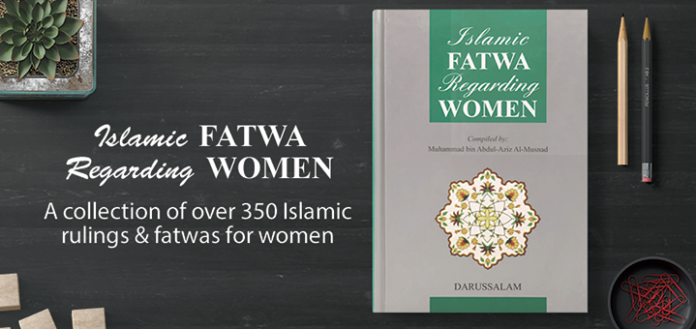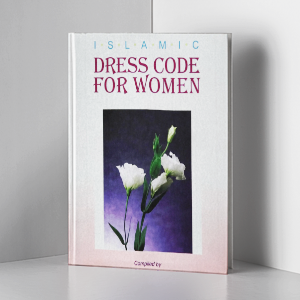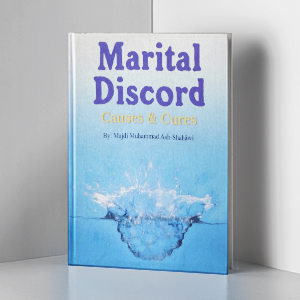What are the Islamic fatwa and rulings in regards to women? How can a woman know what is permissible in Islam and what is prohibited?
Islam is a universal religion and contains guidance for entire mankind, the only issue now is to access the information which is indeed authentic in the light of the teachings of Islam. Islam has catered to both men and women in its guidance, and any question or issue that may arise has already been answered.
Learning about this knowledge of Islam is imperative for every Muslim man and woman. There are also some issues of religion which are a great crime for a Muslim to ignore, such as monotheism and prophethood. Ignoring these issues or neglecting to learn them and the Islamic fatwas is a crime. Similarly, there are some issues that a Muslim cannot live without learning. Unless a Muslim attains Taharah in the manner prescribed by Islam, all his major acts of worship are in vain. In the same way, if a person’s faith deteriorates, his Islam is destroyed. Therefore, the ruling of the Quran in this regard is that:
فَسۡـَٔلُوۤا۟ أَهۡلَ ٱلذِّكۡرِ إِن كُنتُمۡ لَا تَعۡلَمُونَ
If you do not know, then ask those who have knowledge
(الأنبياء: 7)
Whoever knows the knowledge of Islam, his worship, his morals, his character, his piety, his economy, in fact his whole life is much better and more satisfying than the person who has no knowledge of religion. That is why Allah said:
قُلۡ هَلۡ یَسۡتَوِی ٱلَّذِینَ یَعۡلَمُونَ وَٱلَّذِینَ لَا یَعۡلَمُونَ
Say, ˹O Prophet,˺ “Are those who know equal to those who do not know?”
(الزمر: 9)
Worship without knowledge is great ignorance. Ignorance of Islamic fatwas and rulings is an excuse unless there are no means of learning. Being modest cannot be an excuse for ignorance. In the time of the Prophet (PBUH) the women Companions used to ask the Prophet (PBUH) all kinds of questions without hesitation. Sayyidah Ayesha (RA) herself narrated the domestic life of the Prophet (PBUH) openly to the ummah. The women of that time were more modest and religious than the women of today.
In modern times, women face many new problems and issues, but finding the right solution is a bit difficult for them. Some women need solutions to the more common problems and issues of Islam, but they are ashamed to ask the scholars especially if the topic is private and sensitive.

Wouldn’t it be great if all women had a collection of Islamic fatwas and rulings in the light of the Quran and hadith?
Indeed, there is a pressing need to get vital Islamic information out to them. Fatawa books have got vital importance among religious books. In day-to-day life, different people face different types of problems of varying nature and they need their proper solution in light of the Quran and Sunnah.

In addition to the common problems faced by both men and women, women face a lot of problems regarding their menses, postpartum bleeding, istihada, hijab, mixing with men; rights and duties with respect to their husband, husband’s household, children; inheritance, marriage, divorce and so forth. A lot of women are deprived of the basic rulings concerning different aspects of their life. In such cases one should only refer to scholars who can derive rulings from Shariah and give authentic legal verdicts. Hence the people are commanded by Allah to have recourse to the pious scholars.
In Saudi Arabia, women have got the facility to put their questions regarding different kinds of problems faced by them in their day-to-day life, to the eminent scholars herein who are from amongst the best scholars of the world. There are many Fatawa books (responses to their questions) compiled for women in this regard and such Fatawa are an authentic and easily accessible source of knowledge.
The book Islamic Fatwa Regarding Women compiled by Muhammad Bin Abdul-Aziz Al-Musnad is a marvellous piece of work in this regard. The compiler has done a good job of gathering the most important and frequently asked questions by Muslim sisters. The responses are given by some of the top scholars in the Muslim world, namely, Shaikh Abdul Aziz ibn Baz, Shaikh Muhammad ibn Uthaimin and Shaikh Abdullah ibn Jibrin رحمهم الله. Some of the questions were responded to by the “Standing Committee” made up of eminent scholars similar to those just mentioned.

There are quite a few such fatawa books available so what makes this one different?
- Contains solutions to Islamic and modern issues faced by women.
- Responses have been given by the top and senior scholars of the 20th century.
- Contains brief and comprehensive responses with references of the Quran and Sunnah.
- Contains the issues of Aqida, purification, Prayers, Funeral, Zakat, Fasting, Marriage and more.
- Covers over 350 islamic fatwa.
Jamaal Al-Din Muhammad Zarabozo translated these fatawa into English and tried to keep his comments to a minimum- except for the comments on hadith that are referred to in the text paragraph. Usually, comments will only appear to make the meaning of the question or answer clearer to those who are from a different background from the questioners and scholars involved. Very rarely, there may be a comment of a different nature. Due to the nature of Islamic fatawa, or giving answers to questions received, many times important information about the hadith quoted is not mentioned by the scholars. In those cases where the Shaikh did not give the needed information concerning a hadith, the translator has made the effort to trace the hadith and mention such information. In general, if a hadith was from Sahih al-Bukhari or Sahih Muslim, that is all he would mention about the hadith. Otherwise, he would mention only the most important hadith references in which that hadith is to be found. Since the scholars responding to the questions are excellent scholars and knowledgeable of hadith, it is very rare that they quote a hadith which is not authentic. Still, just to give the reader more confidence in the work, the translator did quote hadith specialists concerning those Ahadith that were very not taken from either Sahih al-Bukhari or Sahih Muslim.

He has also made an attempt to limit the number of Arabic terms used in this translation. In this way, every English reader can, Allah willing, benefit completely from the work. However, on occasion, it was necessary to use some Arabic terms. Usually, when coming across such terms, they are defined in parenthesis or are clear from the context. Some of these Arabic terms are completely defined in the glossary at the end of this particular fatawa book.
Let’s take a look at the table of contents to get a better idea of the books covered.
Table of Content
- Translator’s introduction……………3
- Publishers Note………………………….6
- Biographics……………………………8
- What Negates One’s Islam……………………23
- Hypocrisy os of Two Types…………………….26
Chapter 1:Questions Related to Aqidah (Faith)
- Visiting Graves and Using Them as Means of Approach……27
- Posing Questions to Fortune Tellers…………….30
- One Who Opposes the Laws of Allah……………….32
- Celebrating Birthdays………………………………………….33
- How Does One Behave Toward Non-Praying Relative………….34
*Complete table of Contents is mentioned at the end of the blog.

This gives a better idea of the different topics that are covered in this book.
Here are some extracts from the book which can help you understand the importance and significance of the book:
Extract 01: Ruling Concerning Women Looking at Non- Mahram Men
Question 168: What is the ruling concerning a woman looking at non-mahram men?
Response: We advise women not to look at non-mahram men. It is best for the woman if she is not seen by the men and she does not see them. There is no difference on this point between a battlefield or a sports field. A woman is weak and can easily be swayed. Many times, a woman looks at a movie or picture of a young man and her emotions and desires are excited. This exposes her to temptation. Being away from the causes of temptation is always the safest approach.
Shaikh ibn Jibreen
Extract 02: There is No Wedding Procession with the Bride and the Groom Together
Question 172: Is it allowed to have a wedding procession with the groom being with the bride among the women during the wedding parting?
Response: That act is not allowed. It is an indication that modesty has been lost. It is also an imitation of the people of obscenity and lewdness. In fact, the matter is very clear. The groom is too shy to be brought in front of the people! Then how is he going to be brought in front of those in attendance?
Shaikh ibn Jibreen
Short Dresses for Young Children
Question 266: Some women, may Allah guide them, dress their young daughters in short dresses that display the shins. When we advise those women, they answer, We used to wear those when we were young and they did not cause us any harm when we got older.” What is your opinion of that?
Response: I am of the opinion that a person should not dress his daughter in such clothing while she is young. This is because if she grows accustomed to it, she will stick with it and she will consider it a light matter. However, if you trained her properly to be bashful when she was young, she would continue in that proper manner when she gets older. I advise my Muslim sisters to leave the dress of the foreigners who are the enemies of the religion and to bring up their children wearing clothes that cover their bodies and to teach them modesty, for modesty is part of faith.
Shaikh ibn Uthaimin
Interested in similar books? Take a look at our suggestions.
*Complete table of contents
Chapter 2: Questions Related to Knowledge
Chapter 3: Questions Related to Physical Purification
Chapter 4: Questions Related to Menstruation & Post Partum Bleeding
Chapter 5: Questions Related to Prayer
Chapter 6: Questions Related to Funerals
Chapter 7: Questions Related to Zakat
Chapter 8: Questions Related to Fasting
Chapter 9: Questions Regarding Hajj and Umrah
Chapter 10: Questions Related to Sacrifice
Chapter 11: Questions Related to Marriage
Chapter 12: Questions Related to Relations Between the Spouses
Chapter 13: Questions Related to Breast-Feeding
Chapter 14: Questions Related to Divorce
Chapter 15: Questions Related to Waiting Period (Iddah) and Mourning
Chapter 16: Questions Related to Oaths and Vows
Chapter 17: Questions Related to Expiration for a Broken Oath
Chapter 18: Questions Related to Injurious Crimes
Chapter 19: Questions Related to Hijab Dress and Adornment
Chapter 20: Questions Related to Being Dutiful to One’s Parents
Chapter 21: Questions Related to Supplications
Chapter 22: Questions of Miscellaneous Nature
Glossary
Translator’s References
Have you read the book? Let us know what you think in the comments below.




































This is very fascinating, Youre a very professional blogger. Ive joined your rss feed and look ahead to in quest of more of your excellent post. Additionally, Ive shared your website in my social networks!
I love your website, and I especially love this articles.
There is nothing touches our imagination so much as a beautiful woman in a plain dress. -Joseph Addison
very interesting points you have noted , thankyou for posting .
Thanks for the new blog sharing. Its certainly a time made version. I love the content shared.